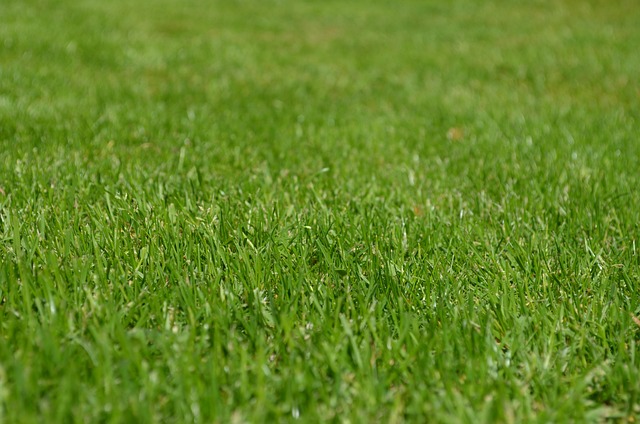Yard waste, from lawn clippings to garden trimmings, poses significant environmental challenges like greenhouse gas emissions and resource depletion. Strategies such as composting and specialized removal services that transform waste into soil amendments or bioenergy are essential for sustainability. Reducing organic waste offers benefits including reduced landfill pressure, lower air pollution, and nutrient-rich compost for agriculture. Home composting and habits like using reusable bags can make a difference. Community initiatives like community composting strengthen local recycling efforts and promote environmental responsibility. The future of organic waste management looks bright with growing adoption of Yard Waste Removal and Recycling programs, advanced composting technologies, and circular economy models that upcycle waste into valuable products.
In today’s world, effective organic waste reduction strategies are crucial for sustainable living. This article explores comprehensive solutions to minimize yard waste removal, focusing on its types and environmental impact. We delve into the numerous benefits of organics recycling, providing a step-by-step guide for households to implement easy changes. Additionally, we examine community initiatives fostering collaboration and discuss future trends shaping organic waste management. Discover how these strategies can transform your local landscape and contribute to a greener world.
- Understanding Yard Waste: Types and Impact
- The Benefits of Organic Waste Reduction
- Effective Strategies for Households: A Step-by-Step Guide
- Community Initiatives: Collaborating for Change
- Future Trends in Organic Waste Management
Understanding Yard Waste: Types and Impact

Yard waste, a term that encompasses a variety of organic materials originating from outdoor activities, is a significant component in the global waste stream. This includes common items like lawn clippings, garden trimmings, and leaves, which, when not managed properly, can have detrimental environmental effects. The impact of yard waste extends beyond local landscapes; it contributes to larger issues such as greenhouse gas emissions during decomposition in landfills and the depletion of valuable resources.
Effective yard waste reduction and recycling strategies are essential for minimizing these impacts. By understanding the types of materials involved and adopting simple practices, individuals and communities can make a substantial difference. These strategies range from composting organic matter to utilizing yard waste removal services that transform this waste into nutrient-rich soil amendments or bioenergy resources, fostering a more sustainable circular economy.
The Benefits of Organic Waste Reduction

Reducing organic waste offers numerous environmental, economic, and social benefits. For communities, it means less pressure on landfills and incinerators, leading to lower greenhouse gas emissions and reduced air pollution. By implementing strategies such as composting and yard waste removal and recycling, residents can divert a significant portion of their organic materials from the waste stream.
This not only minimizes the amount of harmful substances leaching into soil and water but also creates valuable resources like nutrient-rich compost that can be used to enhance local agriculture. Moreover, it fosters a circular economy where organic waste is transformed into useful products, reducing reliance on virgin resources and promoting sustainable practices.
Effective Strategies for Households: A Step-by-Step Guide

Reducing organic waste at home is an impactful way to contribute to a greener planet. A simple yet effective strategy is to start composting. This process turns food scraps and yard waste into nutrient-rich soil, benefiting both your garden and the environment. Begin by collecting suitable materials like fruit and vegetable peels, coffee grounds, and yard trimmings. Then, set up a compost bin in your yard or utilize a designated container if space is limited. Regularly add these organic materials, maintaining a balance of green (nitrogen-rich) and brown (carbon-rich) items for optimal decomposition. Over time, your compost will be ready to use, enhancing soil fertility and minimizing the need for synthetic fertilizers.
Additionally, adopting simple habits can significantly reduce waste. For instance, opt for reusable bags when shopping, say no to single-use plastic straws, and embrace food wrapping alternatives like cloth or paper options. Start a garden to grow your herbs and vegetables, reducing the need for store-bought produce with excessive packaging. Encourage family members to participate in these efforts, making organic waste reduction a household routine. Remember, every small step counts towards a more sustainable future, especially when it comes to yard waste removal and recycling.
Community Initiatives: Collaborating for Change

Community initiatives play a pivotal role in driving organic waste reduction strategies, particularly through collaborative efforts focused on yard waste removal and recycling. When neighbors come together, they can create sustainable systems that transform lawn clippings, leaf piles, and garden trimmings into valuable resources. Community composting programs, for instance, allow residents to collect and process organic materials locally, reducing the environmental impact of transportation.
These initiatives foster a culture of responsibility and resourcefulness where individuals learn to minimize their waste output and maximize reuse. By sharing knowledge, equipment, and labor, communities can enhance local recycling efforts, leading to reduced landfill contributions and more sustainable living practices. This collective action not only benefits the environment but also strengthens community bonds, creating a healthier and greener shared space.
Future Trends in Organic Waste Management

As we move forward, the future of organic waste management looks promising with a growing emphasis on sustainable practices. One key trend is the increased adoption of yard waste removal and recycling programs. Many communities are recognizing the value of transforming organic materials like leaves, grass clippings, and garden trimmings into nutrient-rich compost or biogas through advanced composting technologies. This not only reduces landfill waste but also provides a valuable resource for local farmers and gardeners.
Additionally, there is a rising interest in circular economy models that aim to minimize waste generation and maximize resource recovery. Innovations such as upcycling organic waste into bio-based products, like bioplastics or biofuels, offer exciting possibilities for diverting waste from landfills. With ongoing advancements in technology and growing public awareness, the future of organic waste management is poised to become more efficient, eco-friendly, and integrated into our daily lives, ensuring a greener and more sustainable world.
By implementing organic waste reduction strategies, from household practices to community initiatives, we can significantly minimize our environmental impact. The benefits are clear: reduced landfill waste, decreased greenhouse gas emissions, and a healthier ecosystem. As we move forward, innovative trends in organic waste management, including advanced composting techniques and efficient yard waste removal systems, offer promising solutions for a more sustainable future. Embracing these strategies is not just an eco-friendly choice but a necessary step towards a greener, more resilient world. Through collective action, we can ensure that our organic waste becomes valuable resources rather than harmful byproducts.
